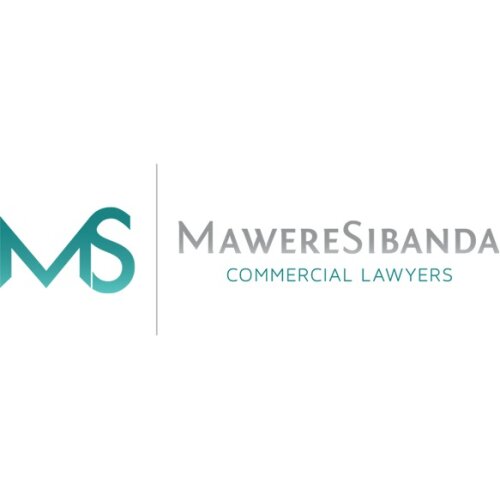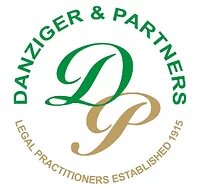Best Nonprofit & Charitable Organizations Lawyers in Zimbabwe
Share your needs with us, get contacted by law firms.
Free. Takes 2 min.
Or refine your search by selecting a city:
List of the best lawyers in Zimbabwe
About Nonprofit & Charitable Organizations Law in Zimbabwe
Nonprofit and charitable organizations play a significant role in Zimbabwe, focusing on areas such as education, health, poverty alleviation, and environmental conservation. These organizations operate under a set of legal guidelines designed to maintain transparency, accountability, and lawful functioning while providing social goods or services without profit motives. The regulatory framework is primarily designed to ensure proper registration, governance, compliance with tax laws, and observance of charitability norms.
Why You May Need a Lawyer
Engaging a lawyer may be necessary for a variety of reasons when dealing with nonprofit and charitable organizations in Zimbabwe:
- Assistance with the registration and incorporation of the nonprofit or charitable organization under the relevant laws.
- Guidance on compliance with the legal requirements for tax exemptions and benefits applicable to nonprofit entities.
- Advice on governance issues, including compliance with constitutive documents and fiduciary duties.
- Representation in disputes that may arise, whether with regulatory bodies, partners, donors, or employees.
- Preparation and review of contracts and agreements with third parties, ensuring all legal requirements are met.
- Advice on fundraising regulations and compliance with donor requirements.
Local Laws Overview
The primary legal framework governing nonprofits and charitable organizations in Zimbabwe includes:
- The Private Voluntary Organizations Act: Governs the registration, operation, and dissolution of nonprofit entities.
- The Income Tax Act: Provides the framework for tax exemptions available to charitable entities.
- Common law and other statutory requirements related to corporate governance and donor compliance are vital for operational integrity.
It's crucial for nonprofits to adhere to these regulations to maintain their legal standing and benefit from potential tax exemptions and other benefits.
Frequently Asked Questions
What is the process for registering a nonprofit organization in Zimbabwe?
Registration is typically undertaken through the Private Voluntary Organizations (PVO) Board under the Ministry of Labour and Social Welfare. The process involves submitting an application form, a draft constitution, and other relevant documents for review and approval.
Are there tax benefits for nonprofit organizations?
Yes, registered nonprofit organizations may be exempt from certain taxes, but they must comply fully with stipulated requirements to qualify. Consultation with a legal expert can provide guidance on these exemptions.
What are the general governance requirements for nonprofit organizations?
Nonprofits must have a clear governance structure as outlined in their constitutive documents. This includes having a board of directors or trustees who oversee the activities and ensure compliance with all legal and regulatory requirements.
Can nonprofit organizations engage in commercial activities?
Nonprofit organizations can engage in income-generating activities, but these should be in line with their charitable objectives. Any profits made must be reinvested in the organization’s primary mission rather than distributed as profits.
What documents are needed for nonprofit registration?
You will need a completed application form, a constitution or a trust deed outlining your organization's objectives and structure, and details of board members or trustees.
How long does it take to register a nonprofit organization?
The registration process can vary in duration, but typically it takes several months from the submission of complete documentation to receive approval.
Are there ongoing compliance requirements post-registration?
Yes, nonprofits must submit annual reports, financial statements, and any other required filings to relevant authorities to maintain their registered status.
Can foreign entities register nonprofits in Zimbabwe?
Foreign entities may establish nonprofit branches or subsidiaries, but they must comply with the same registration requirements as local nonprofits.
What legal issues may arise in the operation of a nonprofit?
Common legal issues include regulatory compliance failures, employment disputes, contract disputes, and governance-related challenges.
What is the role of the board in a nonprofit organization?
The board is responsible for governance, ensuring the organization's activities align with its charitable objectives, and maintaining accountability to stakeholders, including donors and regulatory bodies.
Additional Resources
To enhance your understanding and access valuable information, consider consulting the following resources:
- Ministry of Labour and Social Welfare: Provides information on regulatory requirements and registration processes.
- ZIMRA (Zimbabwe Revenue Authority): Offers guidance on tax regulations and benefits for charitable organizations.
- Zimbabwe Lawyers for Human Rights: A network providing general legal assistance including nonprofit advisory services.
Next Steps
If you require legal assistance for your nonprofit or charitable organization, consider the following steps:
- Identify and contact a lawyer experienced in nonprofit law to understand your needs and options.
- Schedule a consultation to discuss your organization’s current status, compliance requirements, and legal challenges.
- Prepare a list of questions or issues you wish to address during your consultation for comprehensive legal advice.
- Ensure all necessary organizational documents are organized and readily available for review by your legal advisor.
Taking these steps will help you navigate the complexities of nonprofit law and ensure your organization operates effectively within the legal framework of Zimbabwe.
Lawzana helps you find the best lawyers and law firms in Zimbabwe through a curated and pre-screened list of qualified legal professionals. Our platform offers rankings and detailed profiles of attorneys and law firms, allowing you to compare based on practice areas, including Nonprofit & Charitable Organizations, experience, and client feedback.
Each profile includes a description of the firm's areas of practice, client reviews, team members and partners, year of establishment, spoken languages, office locations, contact information, social media presence, and any published articles or resources. Most firms on our platform speak English and are experienced in both local and international legal matters.
Get a quote from top-rated law firms in Zimbabwe — quickly, securely, and without unnecessary hassle.
Disclaimer:
The information provided on this page is for general informational purposes only and does not constitute legal advice. While we strive to ensure the accuracy and relevance of the content, legal information may change over time, and interpretations of the law can vary. You should always consult with a qualified legal professional for advice specific to your situation.
We disclaim all liability for actions taken or not taken based on the content of this page. If you believe any information is incorrect or outdated, please contact us, and we will review and update it where appropriate.
Browse nonprofit & charitable organizations law firms by city in Zimbabwe
Refine your search by selecting a city.
















